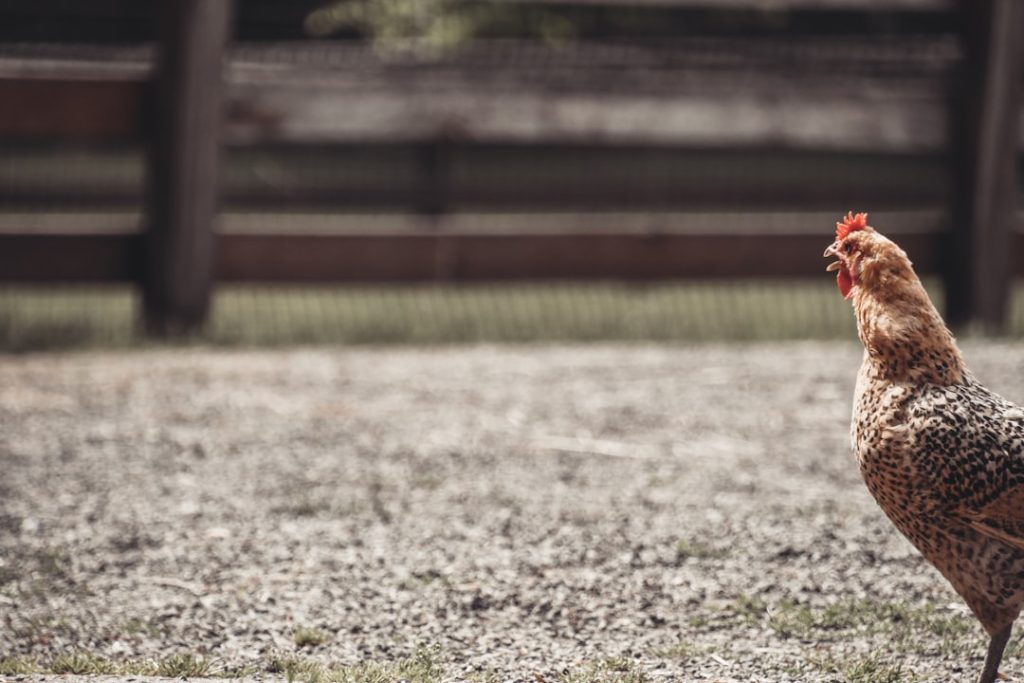When selecting chicken breeds for a backyard flock, several factors should be considered. Climate is a crucial aspect, as some breeds are better adapted to cold weather, while others thrive in warmer conditions. The purpose of the flock is also important; certain breeds are known for their egg-laying capabilities, while others are valued for meat production.
Dual-purpose breeds that provide both eggs and meat are also available. Temperament is another significant consideration, especially for families with children or other pets. Some breeds are known for their docile and friendly nature, while others may be more aggressive or flighty.
The available space for the flock should also be taken into account. Certain breeds are well-suited for free-ranging in larger areas, while others can adapt to smaller, confined spaces. For egg production, breeds such as Rhode Island Red, Leghorn, and Australorp are popular choices due to their prolific laying abilities.
Meat-oriented flocks often include breeds like Cornish Cross or Freedom Ranger. Dual-purpose breeds such as Plymouth Rock and Orpington can provide both eggs and meat. When space is limited, it’s advisable to choose breeds that adapt well to confined areas.
Conversely, if a large area is available for free-ranging, breeds known for their foraging abilities may be more suitable. By carefully considering these factors, backyard flock owners can select chicken breeds that best suit their specific needs and circumstances.
Table of Contents
- 1 Creating a Suitable Living Space for Chickens
- 2 Feeding and Watering Your Chickens
- 3 Providing Proper Health Care for Chickens
- 4 Managing Chicken Behavior and Socialization
- 5 Collecting and Using Chicken Eggs
- 6 Dealing with Common Challenges and Predators
- 7 FAQs
- 7.1 What are the benefits of keeping chickens at home?
- 7.2 What do chickens need to thrive at home?
- 7.3 How much space do chickens need at home?
- 7.4 What should I consider before keeping chickens at home?
- 7.5 What are some common health issues for chickens at home?
- 7.6 How can I protect my chickens from predators at home?
Key Takeaways
- Consider the climate, space, and purpose of raising chickens when choosing the right breed
- Provide at least 2-3 square feet of space per chicken in the coop and 8-10 square feet in the run
- Offer a balanced diet of commercial feed, grains, and fresh greens, and ensure access to clean water at all times
- Schedule regular health check-ups, vaccinations, and parasite control for your chickens
- Encourage natural behaviors and socialization by providing enrichment activities and a suitable flock size
- Collect eggs daily and store them properly to maintain freshness and quality
- Install predator-proof fencing, secure coop doors, and use deterrents to protect your chickens from common threats
Creating a Suitable Living Space for Chickens
The Coop: A Safe and Comfortable Haven
When it comes to creating a suitable living space for your backyard chickens, the coop is the first consideration. The coop should provide enough space for each chicken to roost comfortably, with adequate ventilation to prevent moisture buildup and ammonia fumes. Additionally, the coop should be predator-proof, with secure latches and hardware cloth to keep out predators such as raccoons and foxes. It should also have nesting boxes for the hens to lay their eggs and be easy to clean and maintain.
The Outdoor Run: Exercise and Foraging Space
However, creating a suitable living space for your chickens involves more than just a coop. You’ll also need to provide a secure outdoor run where your chickens can exercise and forage. The run should be enclosed with wire mesh to keep out predators and provide at least 10 square feet of space per chicken. This will give them the freedom to move around and engage in natural behaviors.
Enrichment and Health Essentials
To keep your chickens entertained and mentally stimulated, consider providing enrichment items such as perches, dust baths, and toys. Finally, make sure your chickens have access to fresh water and a balanced diet to keep them healthy and happy. By providing a suitable living space, you’ll be able to keep your backyard chickens happy, healthy, and thriving.
Feeding and Watering Your Chickens

Feeding and watering your chickens is an essential part of caring for your backyard flock. When it comes to feeding, it’s important to provide a balanced diet that meets all of your chickens’ nutritional needs. This typically includes a commercial feed that is formulated specifically for chickens, as well as access to fresh fruits and vegetables, grains, and protein sources such as mealworms or kitchen scraps.
Additionally, make sure your chickens have access to clean water at all times. Water is essential for digestion, egg production, and overall health, so it’s important to check waterers regularly and clean them as needed. On the other hand, when it comes to feeding your chickens, it’s important to provide a balanced diet that meets all of their nutritional needs.
This typically includes a commercial feed that is formulated specifically for chickens, as well as access to fresh fruits and vegetables, grains, and protein sources such as mealworms or kitchen scraps. Additionally, make sure your chickens have access to clean water at all times. Water is essential for digestion, egg production, and overall health, so it’s important to check waterers regularly and clean them as needed.
Providing Proper Health Care for Chickens
Proper health care is essential for keeping your backyard flock happy and healthy. This includes regular health checks to monitor for signs of illness or injury, as well as providing appropriate vaccinations and parasite control. Additionally, it’s important to keep your coop clean and well-ventilated to prevent the spread of disease.
If you notice any signs of illness in your flock, it’s important to consult with a veterinarian who specializes in poultry health. On the other hand, providing proper health care for your chickens involves regular health checks to monitor for signs of illness or injury. Additionally, it’s important to provide appropriate vaccinations and parasite control to prevent common poultry diseases and infestations.
Keeping your coop clean and well-ventilated is also essential for preventing the spread of disease. If you notice any signs of illness in your flock, it’s important to consult with a veterinarian who specializes in poultry health.
Managing chicken behavior and socialization is an important aspect of caring for your backyard flock. Chickens are social animals that thrive in a flock environment, so it’s important to provide opportunities for social interaction and enrichment. This can include providing perches and roosts for chickens to rest on, as well as access to outdoor space where they can exercise and forage.
Additionally, consider introducing new chickens to the flock gradually to minimize stress and aggression. On the other hand, managing chicken behavior and socialization involves providing opportunities for social interaction and enrichment. This can include providing perches and roosts for chickens to rest on, as well as access to outdoor space where they can exercise and forage.
Additionally, consider introducing new chickens to the flock gradually to minimize stress and aggression.
Collecting and Using Chicken Eggs

Regular Collection for Freshness
Collecting eggs from the nesting boxes regularly is vital to ensure they remain fresh and safe to eat. This habit helps prevent bacterial growth and keeps your eggs clean.
Proper Storage for Safety
Storing eggs properly is equally important to maintain their quality. Make sure to store them in a cool, dry place, and handle them gently to avoid cracks.
Reusing Eggshells for Chicken Health
Don’t throw away those eggshells! Crush them up and add them to your chickens’ feed as a natural source of calcium. This will help support their overall health and well-being.
Dealing with Common Challenges and Predators
Keeping your backyard flock safe from common challenges and predators is an important part of caring for chickens. This can include protecting your coop from predators such as raccoons, foxes, and birds of prey by using secure latches and hardware cloth. Additionally, consider using deterrents such as motion-activated lights or sound devices to keep predators away from your coop.
On the other hand, dealing with common challenges and predators involves protecting your coop from predators such as raccoons, foxes, and birds of prey by using secure latches and hardware cloth. Additionally, consider using deterrents such as motion-activated lights or sound devices to keep predators away from your coop. Regularly inspecting your coop for signs of wear or damage can also help prevent predators from gaining access to your flock.
In conclusion, caring for a backyard flock of chickens involves many different aspects including choosing the right breed of chicken, creating a suitable living space for them, feeding and watering them properly, providing proper health care, managing their behavior and socialization, collecting and using their eggs, and dealing with common challenges and predators. By considering each of these aspects carefully and providing attentive care, you can ensure that your backyard flock remains happy and healthy for years to come.
If you’re interested in learning more about keeping chickens at home, you may also want to check out this article on choosing a heater for a chicken coop. This article provides valuable information on how to keep your chickens warm and comfortable during the colder months, ensuring their health and well-being.
FAQs
What are the benefits of keeping chickens at home?
Keeping chickens at home can provide a sustainable source of fresh eggs, natural pest control for your garden, and a source of organic fertilizer for your plants.
What do chickens need to thrive at home?
Chickens need a secure and predator-proof coop, access to fresh water, a balanced diet of chicken feed, and a suitable outdoor space for foraging and exercise.
How much space do chickens need at home?
Chickens need at least 2-3 square feet of coop space per bird, and at least 8-10 square feet of outdoor space per bird for foraging and exercise.
What should I consider before keeping chickens at home?
Before keeping chickens at home, consider local zoning laws and regulations, the time and effort required for daily care, and the potential impact on neighbors and the local environment.
What are some common health issues for chickens at home?
Common health issues for chickens at home include parasites, respiratory infections, and injuries from predators or other chickens. Regular health checks and proper hygiene can help prevent these issues.
How can I protect my chickens from predators at home?
To protect chickens from predators at home, use secure fencing, lock up the coop at night, and consider using motion-activated lights or sound deterrents. Additionally, consider getting a guard dog or installing a predator-proof coop.
Meet Walter, the feathered-friend fanatic of Florida! Nestled in the sunshine state, Walter struts through life with his feathered companions, clucking his way to happiness. With a coop that’s fancier than a five-star hotel, he’s the Don Juan of the chicken world. When he’s not teaching his hens to do the cha-cha, you’ll find him in a heated debate with his prized rooster, Sir Clucks-a-Lot. Walter’s poultry passion is no yolk; he’s the sunny-side-up guy you never knew you needed in your flock of friends!







